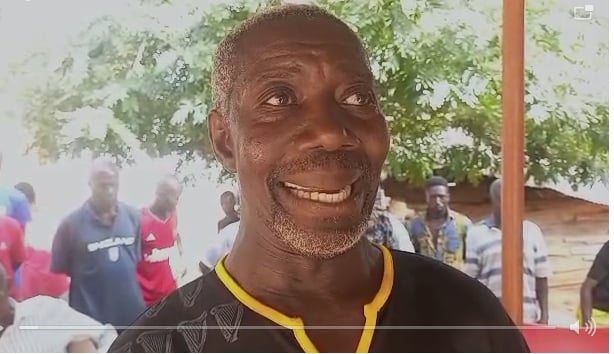The tranquil community of Asikam in Ghana’s Eastern Region has been thrown into turmoil following a clash between residents and the Forestry Commission over timber intended for the repair of the local primary school. A violent storm two weeks prior had ripped the roof off the Asikam D/A Basic School, leaving the building exposed to the elements and rendering it unusable for the impending academic term. The community, demonstrating remarkable resilience and a commitment to their children’s education, quickly mobilized resources. A generous local resident donated an odum tree, a valuable hardwood timber, while others contributed financially and pledged their labor to effect the necessary repairs. This collective effort underscored the community’s deep-seated belief in the importance of education and their determination to overcome the setback caused by the storm.
However, just as the community was poised to begin the reconstruction, officials from the Mpraeso office of the Forestry Commission intervened, seizing the donated timber. The officials cited regulatory breaches concerning the wood’s origin and transportation as justification for their actions. This intervention brought the community’s restoration efforts to an abrupt halt, leaving the school in its damaged state and forcing pupils to remain at home. The Forestry Commission’s intervention, while ostensibly aimed at upholding regulations, has inadvertently created a significant obstacle to the community’s access to education. This action has sparked widespread frustration and anger among parents, community leaders, and residents, who perceive the seizure as a heavy-handed bureaucratic response to a genuine community need.
The community’s frustration stems from the perceived disconnect between the Forestry Commission’s actions and the urgency of the situation. The seizure of the timber has effectively stalled the repair work, leaving the school building exposed to further potential damage from the elements. With the new academic term fast approaching, the continued closure of the school raises serious concerns about the disruption to students’ education and the potential for them to fall behind in their studies. The incident highlights the complex interplay between environmental regulations, community development, and the right to education, particularly in rural settings.
Mr. Omari Sampson Asiedu, a Unit Committee member, voiced the community’s concerns, characterizing the timber seizure as a major setback to their efforts to ensure uninterrupted education for the children of Asikam. He emphasized the community’s good faith in mobilizing resources and highlighted their sole objective: to provide a safe and conducive learning environment for their children. His statement underscores the community’s perception of the Forestry Commission’s actions as an impediment to their educational goals. The community’s efforts to secure the timber were not driven by illicit motives, but rather by a desire to quickly restore the school and ensure that their children’s education would not be compromised.
Nana Ntim Boateng I, the Chief of Asikam, has appealed for urgent intervention from higher authorities, including the area’s Member of Parliament, Dr. Bryan Acheampong, and the District Chief Executive, Samuel Asamoah. He has urged the Forestry Commission to demonstrate understanding and flexibility, recognizing the pressing educational needs of the community. The chief’s plea, “This is about our children’s future,” encapsulates the community’s anxieties about the long-term implications of the school’s closure. The disruption to their education could have profound consequences for the children’s future prospects, hindering their personal development and limiting their opportunities.
The parents and residents of Asikam have echoed the chief’s appeal, emphasizing their single-minded focus on enabling their children to return to school. They have pleaded with authorities to swiftly resolve the impasse and permit the roofing project to proceed unimpeded. Their pleas highlight the deep-seated value they place on education and their unwavering commitment to ensuring their children have access to quality learning. The community’s collective response to the crisis underscores the importance of community-led initiatives in addressing local challenges and the need for government agencies to work collaboratively with communities to find solutions that benefit all stakeholders. The incident serves as a reminder that regulations, while essential, should be applied with sensitivity to the specific circumstances and needs of the communities they are intended to serve, particularly when those regulations impact fundamental rights like access to education.














